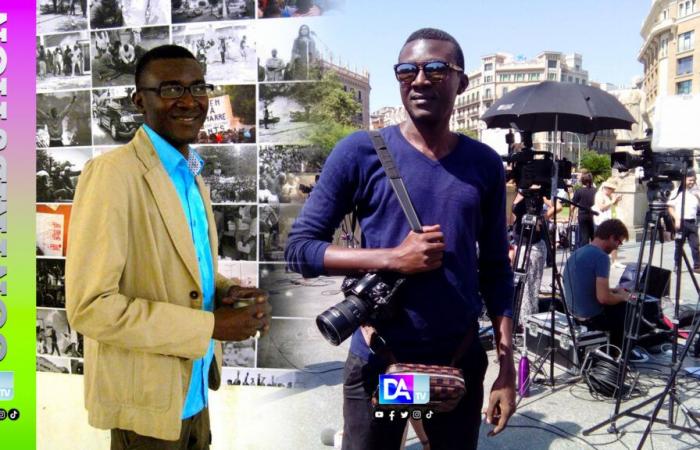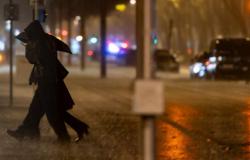Has Africa slept too long for some to dare to speak of its awakening, of its catching up? This continent, which is only very often perceived according to the perspective of others, has a challenge to take up, an image to correct. It is a necessity towards a consecration of mutual respect, a consecration of human dignity, a highlighting of its values and appropriate solutions to the demands of the present which allow us to calmly envisage the future. An approach which challenges those involved in Arts and Culture, in particular those in the photography sector, or even the image sector, whose impact is still underestimated or unknown. Yet it influences society, politics, the economy, etc.
Let it happen through the photographic tool, what another tragedy! Actors of photography, nicknamed “learned kings” sometimes urge, in their message to young people, to abandon the idea of illegal immigration which is an injury to the dignity of our peoples. However, many of these photographers work in conditions that would push them towards idleness and adventure. Indeed, through extreme difficulties linked to mistreatment at work, notably the very brilliant distortions of objective reality, bad payments, negligence, false moral obligations, intentional mistakes, repetitive theft of photos, misappropriation photos, etc., hundreds, even thousands of young African photographers show breathtaking determination just to live from their passion, to act professionally at the very cost of their lives.
Recently, a young photographer had bought a new camera at a good price to take beautiful photos and certainly beautiful videos. He thought he could realize his professional dream and document in images the entire crossing of a canoe of illegal migrants. He was aware of the risks he could encounter for this large production of images which should also help him grow his small local business. His way of approaching his job, his commitment ultimately lost him. A beautiful person, a beautiful soul then perished with the sinking of the canoe in which he had boarded. Proof that photographers take so many risks, without insurance, for solutions to serious problems. Risks, sacrifices which do not arouse any concern among people called: “photo theft specialists”. Should we remind them that what they publish, the photographer’s exclusive right is enforceable against everyone.
In an era where digital technology very often dehumanizes, photographic techniques have evolved. There is always a surface at the back of our “sensitive eye” that sends information to our brain. Photography can and must restore the capacity for empathy, reminding us that deep down we all share the same aspirations for a better future. Photography is not to be stolen. Not only does photo theft affect thousands of photographers, it directly affects the lives of millions of families and endangers the future of thousands of photographers and millions of African authors. However, real opportunities for young people in disarray almost do not yet exist or are of minimal importance in the context of the changes envisaged by African States to reduce unemployment. For some young people, their way of understanding success, their commitment to the dream can lead them to lose their lives trying to reach Europe. Faced with this, the moral obligation of a professional photographer to commit his time is to also be a critical observer and an active participant in the struggles that define our era.
Analysis has great value, an ability to make frustrating realities visible, to raise awareness and to promote real changes to Human Dignity. It marks a significant step in strengthening the fight against photo theft and forms of misappropriation of photography in Africa. On the road, what happens behind and in front of the camera is sensitive, solitary and harsh for a long time. In fact, the true function of a photographer is a form of resistance, of never preferring the comfort of the known. The photographer’s mission is a celebration of human resilience, the ability to find beauty in the midst of chaos, and the ability to dream for a better future amidst suffering at work. Denouncing injustice, in the face of an injustice that African photographers experience, only angers the ignorant and the unjust. This denunciation marks a significant step in strengthening the fight against photo theft and forms of photo misappropriation in Africa. Photo theft is quite simply the commission of a crime, a fraudulent theft of someone else’s property. But there are many manipulative actors and other photo thieves who constitute obstacles to the freedom of the profession and to the economy of the photography sector, to try to make people believe that the photos are free of rights. They have a personality disorder. Of all the photos belonging exclusively to the photographer that they publish without authorization in newspapers, on the Internet or in social networks, these publications constitute a flagrant violation of the rights of photographers and therefore photo theft. An attack on the Economy of our African societies and on Human Dignity. The theft, the attacks that they carry out through their constant publications of the works of photographers and other authors are intimately linked to the “gangs of thugs” and the “colonial banditry” that they try to reinforce, forming a link fraternal, not very powerful. This bond between “thugs” transcends simple “intellectual guarding” and becomes a central pillar of their existence as unhealthy actors, through “postures” and colonial and post-colonial intellectual dishonesty.
Photo theft or misappropriation of photographs accompanied by intellectual dishonesty is neither an aesthetic nor an ethical question. It is a resistance to change, a visceral fear of those who want to call into question, in particular, respect for dignity. It is not enough to say: “I agree with your fight or I support your fight which is legitimate. » This must be sincere, motivated and accompanied by a change in attitudes and behavior. Photo theft is quite simply a betrayal of the very essence of our profession; it is a refusal, in the eyes of the world, to encourage the efforts of many African photographers and authors.
The social commitment of the photographer, of the author, is an inevitable responsibility despite “adversity”. Silence in the face of injustice is in itself a form of violence. This silence is complicity. I invite (again) my dear African sisters and brothers who have the obligation to act in their immediate environment, to spark dialogue, to connect again with our societies and to create bridges between people. It is an effort towards a fairer, more solitary and more prosperous society. It is also a shared cry, an act calling for a real change in behavior. Photographers must be both a mirror and a hammer, capable of reflecting the truth with clarity and, at the same time, sculpting a new, more positive future for our societies. Despite the misunderstandings and criticism they face from the “demons” who want to live off their economic and cultural selfishness, photographers must not give up on their mission. Their generosity is limited to sharing their vision. Their courage to challenge the so-called “learned kings” and their authenticity to remain true to themselves are acts that have the power to transform our societies, it is a fight against those who want to ensure and maintain control of the narrative visual. We have all the capacity to definitively defeat the “learned demons” through the control of the visual narrative and to eradicate this injury to human dignity which is illegal immigration.
Mamadou Gomis, author-photographer, researcher, founder of the African Federation on Photographic Art (FAAP) and founding member of the National Union of Photojournalists of Senegal (UNPJS).






